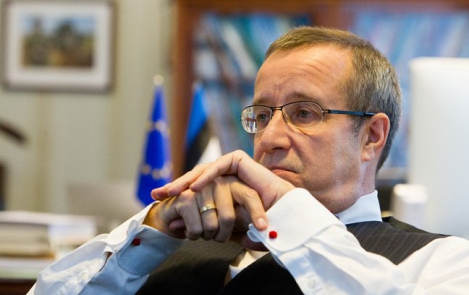-
Reset
+

"Reflections On A Year Of Russian Aggression", The Interpreter
17.02.2015
Toomas Hendrik Ilves
I have called the year 2014 an annus horribilis, as opposed to the annus mirabilis 25 years ago that gave our part of the world the chance to opt for freedom and democracy.
I hate numerology but it is really odd to see that a quarter of a century after the amazing flowering of democracy throughout Eastern Europe we have this roll-back happening right before our eyes. And now, we see the worst ghosts of the 20th century returning. We've seen annexation of territory through force; we've seen new forms of war waged under the cover of old ideological long, long discredited: ideas such as the existence of co-ethnics abroad, in a different country and the alleged need to protect them from their bloodthirsty but still democratically elected governments.
Russia's actions in Ukraine have violated all the international agreements that the post-Cold-War, and even just Post-War security order, have relied on to maintain peace: starting with the Charter of the United Nations from 1945, which says "Members shall refrain in their international relations from the threat or the use of force against the territorial integrity or the political independence of any state," to the Budapest Memorandum from 1994 in which Ukraine gave up its nuclear weapons in return for promises to respect its territorial integrity. In that time we've seen everything roll back.
One of the agreements that has been violated was the crucial agreement that reconciled sovereignty with human rights, known as the Helsinki Final Act, from 1975, which said, on the one hand, that there would be no more changing of borders through use or threat of force – and that, oddly enough, was the Soviet side of the argument. That was the demand on the part of the Soviet Union that the West accepted: no border changes would take place. The West, in turn, in this grand bargain on security and human rights and sovereignty, insisted on the third basket, which said that states party to the Helsinki Final Act would have to allow and guarantee fundamental human rights, including the ones we hold most dear, such as freedom of speech, freedom of association and freedom of religion.
The annexation of Crimea and invasion in Ukraine show us that the Helsinki Final Act no longer applies, because one of the signatories has violated it and nothing has really happened as a result of that. And in the whole process – not only the Anschluss of Crimea, but also the war in East Ukraine and the rhetoric that goes with it, the intimidation of other neighbors and threats addressed to "the West" at large — show that there is an ongoing attempt to create a new international order where the old rules, the rules that have been at the basis of the international relations from Vancouver to Vladivostok, no longer apply.
I am personally most concerned about the "Zwischenländer," those countries between NATO and Russia where there are new attempts to form spheres of influence, where in fact the democratic choice of those countries has no role as to what they can do, they have no say about their future. This, I would argue, is a major denial of human dignity.
Original article on The Interpreter webpage.

